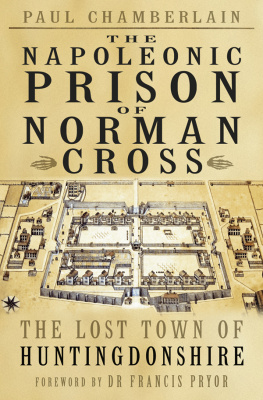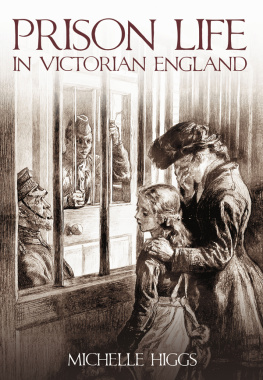Contents
Guide


First published 2018
The History Press
The Mill, Brimscombe Port
Stroud, Gloucestershire, GL5 2QG
www.thehistorypress.co.uk
Paul Chamberlain, 2018
The right of Paul Chamberlain to be identified as the Author of this work has been asserted in accordance with the Copyright, Designs and Patents Act 1988.
All rights reserved. No part of this book may be reprinted or reproduced or utilised in any form or by any electronic, mechanical or other means, now known or hereafter invented, including photocopying and recording, or in any information storage or retrieval system, without the permission in writing from the Publishers.
British Library Cataloguing in Publication Data.
A catalogue record for this book is available from the British Library.
ISBN 978 0 7509 8734 9
Typesetting and origination by The History Press
Printed and bound by CPI Group (UK) Ltd, Croydon, CR0 4YY
eBook converted by Geethik Technologies
CONTENTS
ABOUT THE AUTHOR
PAUL CHAMBERLAIN is an author and historian of the Napoleonic era. He is an authority on prisoners of war in the period 17931815 and was heavily involved in the Napoleonic Eagle restoration at Norman Cross and the Time Team dig at the site in 2009.
FOREWORD
This is the fascinating story of the worlds first purpose-built prisoner-of-war camp at Norman Cross, Huntingdonshire. It was opened in 1797 and closed in 1814. The 7,000 inmates were housed in barrack blocks behind high walls and the camp was equipped with kitchens, dining areas and a substantial medical wing. Some 1,770 prisoners died during the camps seventeen years of use, and are buried on the premises in a cemetery whose whereabouts remained unknown until the site was excavated by archaeologists from Time Team, Channel 4s television documentary series, over three days in July 2009.
My interest was first aroused as a young boy in the 1950s when I can clearly remember driving up to the Norman Cross junction on the Great North Road and seeing the unforgettable sight of an eagle poised on top a graceful column. It looked so very lifelike. I asked my father, the fount of all wisdom, what it was. Oh, he replied, thats a memorial to the men who died there, when a Zeppelin was shot down in the First World War. And of course I believed him. But some twenty years later, when I was starting to read about the regions rich history before I began a series of major excavations as part of the building of Peterborough New Town, I realised that my father had been talking rubbish. There had never been a crashed Zeppelin. Readers of this book will be able to discover the truth about that eagle and its interesting later life on either side of the Great North Road, or A1, as we must now call it.
My main excavations in Peterborough were far from Norman Cross, at Fengate, on the citys eastern edge, but I spent many happy days in Peterborough Museum, where our team had temporary offices and where most of our finds were archived. In the museum I could hardly fail not to be impressed by a series of superbly carved bone models I particularly remember a warship and a guillotine that had been fashioned by Napoleonic prisoners of war, based at Norman Cross. We found good evidence for the making of these carvings in our Time Team excavations and they are discussed fully in .
Today, little remains of the actual camp, although parts of the main exterior wall survive on either side of the elegant Barrack Masters House (also known as Norman Cross Lodge). This book discusses what remains of the camp and of objects that we know were made there. It goes on to consider all aspects of life at Norman Cross, from the prisoners themselves and the staff looking after and guarding them, to the camps administration, the cooking, medical procedures and provision for hammocks. This attention to detail throws vivid light on life both within and outside the camps tall surrounding walls. There was a surprising amount of contact between prisoners and local people. Its a gripping story that deserves to be read from cover to cover.
Dr Francis Pryor
2018
INTRODUCTION
In 1913, Dr Thomas James Walker published The Depot for Prisoners of War at Norman Cross, Huntingdonshire, 1796 to 1816 that until now has been the only reference work telling the story of this major Napoleonic prison. His work was a prelude to unveiling the Norman Cross Eagle Memorial the following year. The path to this new study began in the autumn of 1990, when that memorial was vandalised and the bronze eagle stolen. The Norman Cross Eagle Appeal was formed to raise funds for its restoration and to promote a greater understanding of the depot and its place in history. As you read this book it will be evident how successful that group of people has been in achieving this aim, and I was privileged to be one of those early enthusiasts who wanted to restore an important part of our heritage, and it was also another strand to my special interest in the Napoleonic prisoner-of-war story.
Since those early meetings at Peterborough Museum to plan fundraising and publicity for the appeal, the story of Norman Cross Prison Depot has become a big part of my life, with many friends made along the way. It is also a journey that keeps throwing up new facts and hitherto untold stories of a fascinating subject, so I have many people to thank for what has been an enjoyable and rewarding delve into the past to bring the story into the present.
First and foremost, I must thank the Friends of Norman Cross: the modern agent at the site Derek Lopez and his wife Mary, Peter Lee, Olive Main, Doug Maltman, Val Hunter, Teresa Williams, Norma Nichols; this group of enthusiastic supporters of the story has made this book possible.
Along the way many have provided help with facts, new stories to pursue, or access to archives and items that add to the story. Those people I am grateful to are David Adamson, Rob Adamson, Roy and Leslie Adkin, Bob Bioletti, Sue Bond, Mick Crumplin, Liz Davies, Tom and Jennie Davies, Nykle Dijkstra, Julie Fletcher, Barbara Heathcote, Richard Hillier, Pam Judkins, Margaret Long, Andrew Longworth, Lorraine Mepham, Neil Mitchell, Elise Naish, Stuart Orme, Ben Robinson, Phil Stevens, Glenys Wass.
Thanks also go to the staff at many archives and museums: the British Library, Hampshire Cultural Trust, Huntingdon Library and Archives, Lynn Museum, The National Archives Kew, Peterborough Central Library and Archives, Peterborough Museum and Art Gallery, Wakefield Museums, Wessex Archaeology, Yarmouth Museum, Penrith Library New South Wales, Wardown House Museum and Gallery Luton.
Thanks go to Francis Pryor for adding his foreword and to Time Team for the fascinating and very enjoyable three days spent in the summer of 2009 digging up the past. Thanks also to Matilda Richards and Nicola Guy at The History Press for their guidance in the production of this book.
Last but not least, thanks go to my wife Melissa for her support of me during this project, tolerating the endless hours I have spent in my office or at archives around the country, and for the many occasions she has helped with presentations at Norman Cross.
Paul Chamberlain












